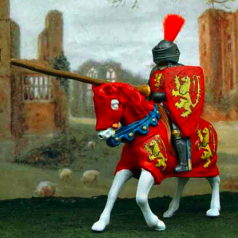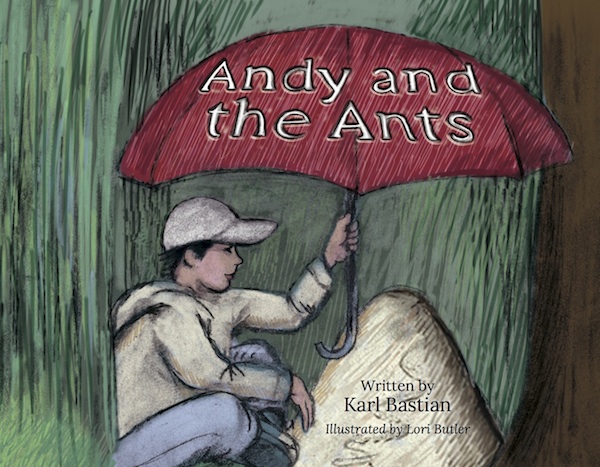I got an e-mail referred to me from a parenting expert asking me to help answer a dad’s question on how to handle his son’s desire to play knights, including the “killing” of bad guys. Below is how I answered him, what are you thoughts, input? What advice would you give? He asked:
I have a 4 year old boy that loves to play with his knights and wants me to play along, but I get lost in how to play? Who is the enemy? I’m just at a loss. His knights are cool, but they have knives and swords and I’ve tried to fight the dragons, but now he wants to fight the bad guys. I’ve tried to say, we need to try to talk to the bad guys and help them become good, but he says he did that and there is no hope so they’ve got to go! He loves setting up his army guys, green against tan and well the same kinda thing. I just need some help on helping him be the protector and the fighter and the knight, but don’t want him to be cold to the other side. Then we get into “he’s dead!” Ahhhhhhhhhhhhhhhh, I need some biblical guidance. Your ideas would be most helpful!
Here is my response, I’d love your comments below:
Thanks for writing, I appreciate both your desire to connect with and play with your son, but also you concern to not encourage play that isn’t healthy or best in developing Godly values in your son. I have had the unique experience of being a big brother to a little boy born when I was 13 so I was a teenager/college throughout his growing up, and now as the father of a son of my own.
My first advice, would be to not worry too much about your son’s desire to roleplay “killing” or fighting with soldiers – there is a degree to which he is merely playing out the warrior characteristics God built into men. Our role as leaders and protectors shows itself in young boys in their play as soldiers, knights, super heroes, etc. When I was a young boy my mom tried to prevent me from “playing guns” as she was concerned I might grow up and shoot someone! On one family vacation she caught me playing guns with a stick I found that was shaped like a gun. At that point she realized that it was useless to try and keep me from role playing with guns, and ironically, she saved that stick and I have it to this day. I love water guns to this day, but have never gotten into “real” guns and certainly haven’t shot anyone, despite lots of gun play as a boy. The reality is, I wasn’t role playing “guns” so much as I was defending what was important to me, being brave and a hero, and sticking up for what is right. Things I still strive to do, minus the guns. So to one degree, its good to be sensitive, but don’t stress over it too much, you may be fighting against the way God wired little boys to be.
However, having said that – there are ways to keep war, fighting, or killing play within healthy bounds. Here are a few ideas worth trying:
1) Make the enemies non-human, robots, aliens, monsters, etc. – i.e. things that don’t exist (Notice in star wars the enemies are often aliens or clones, one reason moms like star wars)
2) Minimize killing with stun guns, or letting those defeated, shot, get up and walk away. (Notice in G.I. Joe even when a jet plane crashes, they always show the bad guys running away, a way to minimize death.)
3) Play organized fighting GAMES instead of real life. Soldiers can be doing training, or Knights can be competing in a competition to become the King’s Royal Guards or something. So the losers don’t “die” they just lose.
4) Model forgiveness in your play. You don’t need to preach at him, but when he makes a toy “kill” one of yours, you can say, “Hey, that hurt, but I forgive you” You can even joke a little, “You need to go to Sunday School!” or “You obviously need Jesus, you know He died even for you!” Keep your correction soft and light hearted and he will hear you better than if you lecture him, as then he might just ignore you thinking you don’t understand or are taking it too seriously, because I can tell you, he isn’t taking it very seriously, he is just playing.
The biggest keys in raising a son, is what you teach him about REAL life – not how he plays with toys. I did a lot of toy warfare as a boy, but when I had a bully at school (a REAL bad guy) my dad coached me through showing love to enemies, even giving a gift, buying a comic that one bully liked to better relate to him, and I saw many of these bad relationships turn into friendships through my dads coaching. In the end, how I handled “real” bad guys was far more important than how I played with bad guys who were 2 inches tall.
Keep in mind, even if your son uses harsh words like killing or “your dead” they don’t understand death or its permanence to the degree we do as adults. They will yell “your dead” to a friend and being playing with them 2 minutes later. I wouldn’t be concerned with a boy wanting to kill toys, if it were a pet or living thing, then I would be more concerned.
If you son is old enough, you may want to watch Price Caspian, the most recent Narnia movie. It is a little violent, BUT there is a great scene where Prince Caspian wins the right to kill the enemy king, and while he wants to (this man killed his father!) he chooses not to kill him and says something like, “I am not like you” meaning that he is wants to be a GOOD king, by being merciful.
I hope this has been a little helpful and encouraging to you – bottom line, play, be the dad, be gentle and encouraging, point out what concerns you (thats your job) but let him grow at his own pace. He will outgrow this and be on to something else soon enough!
A fellow dad on the journey,
Karl
What do you think? How would you have answered differently? Or what would you add? Your constructive input is desired! I’ll forward to this dad your input as well!
HERE ARE SOME VIDEOS OF ME PLAYING KNIGHTS ON TOYBOXTALES.com
-
The Reign of the Dark Knight (4 Part Series)
-
The Good Byonicle
-
The Unforgiving Knight
-
King’s Son
-
The Rock
-
None Shall Pass










Excellent response, Karl. There’s not a lot I can add to that, except to echo that much of the play fighting is “hard wired” into boys. I think the basic desire for justice, to triumph over and eradicate evil, is, at its core, healthy.
But we also need to be aware that much of the popular media that boys emulate tends to be morally ambiguous. Back when I was a kid, my dad and I watched “championship wrestling” every Saturday. There were good guys and bad guys. The bad guys would cheat and do all sorts of dasterdly things, but eventually, the good guys would prevail. But if you look at pro wrestling today, the good guys and bad guys all use the same underhanded techniques to win. Some of the heroes in movies and television are almost as dark and scary as the villians. With a few notable exceptions (Star Wars, Narnia), there is a growing lack of boundaries or moral context to the killings.
I agree that the key is communication. It starts with talking about depictions of fighting in comics, tv, and movies (“why?” “what?” “could there have been a better way?” etc). Hollywood will rarely if ever provide the moral compass, nor should they. It’s our job as parents to put these “role models” into the proper context.
Always leads to a fascinating discussion, this topic does. I’ll just add two things:
#1. “Don’t panic.” That’s indeed always my number one rule about children’s fantasy play. As it seems the original writer has always done, trying to become engaged with your child’s play and “uncover” what it’s really all about is usually the best course of action. Sharp or knee-jerk reactions never quite work the way you expect or really want.
#2. Vivian Gussin Paley, a former Kindergarten teacher at the University of Chicago’s lab school, has written some very excellent, widely enjoyed and acclaimed books on fantasy play, drawing on the stories and children from her own classroom. “A Child’s Work: The Importance of Fantasy Play” and the especially apt, “Bad Guys Don’t Have Birthdays: Fantasy Play at Four” are two I’d especially recommend — just be warned they’re wonderfully engaging and accessible, to the point where you might not want to put them down.
Excellent responses!
I think John Eldredge did a good job tackling this issue in several places in a couple of places in Wild At Heart.
Not much to add to what you said above. I think you have laid it out well. However, if a young person’s play acting involves extreme behavior such as terrorizing live animals like cats or small dogs, then that obviously is a huge red flag. Also, I think parents would do well to learn how to observe their child’s play and listen to the themes that emerge from their actions and words. Since play is the primary language of young children and toys are their vocabulary (Gary Landreth, U of N. Texas), then there can be times for specific children when play moves beyond the realm of innocent make-believe and into the arena of acting out their own trauma through progressively violent play. In all cases, I do think parents bear a responsibility to be aware of their child’s play and also to set safe and appropriate limits. For example, hitting Theodore the Cat is never acceptable. Having toy Spiderman and engage in hand-to-hand with the toy Joker should be fine. Great post, thanks!
Wow, I have REALLY appreciated the thoughtful responses to a delicate conversation. Hoping others will chime in too.